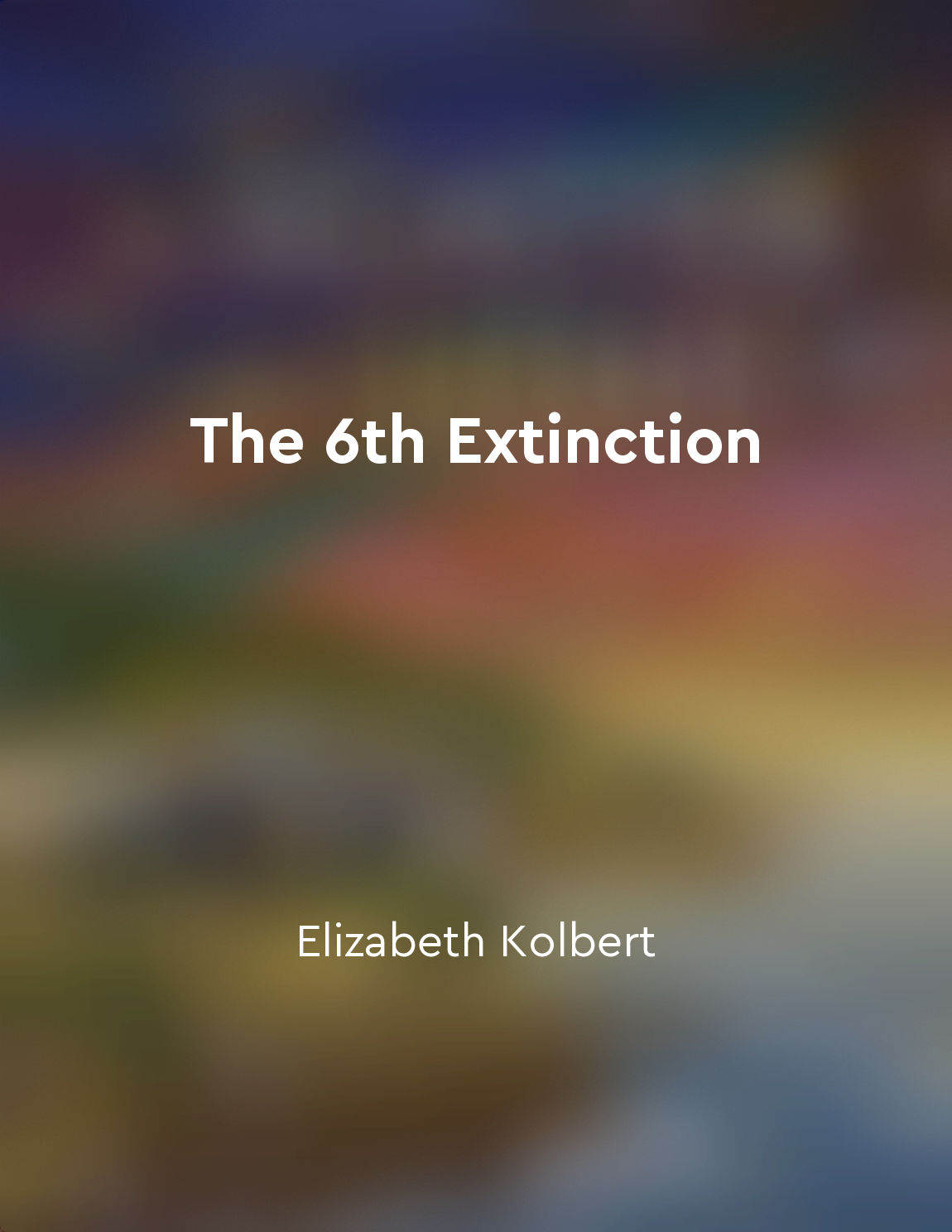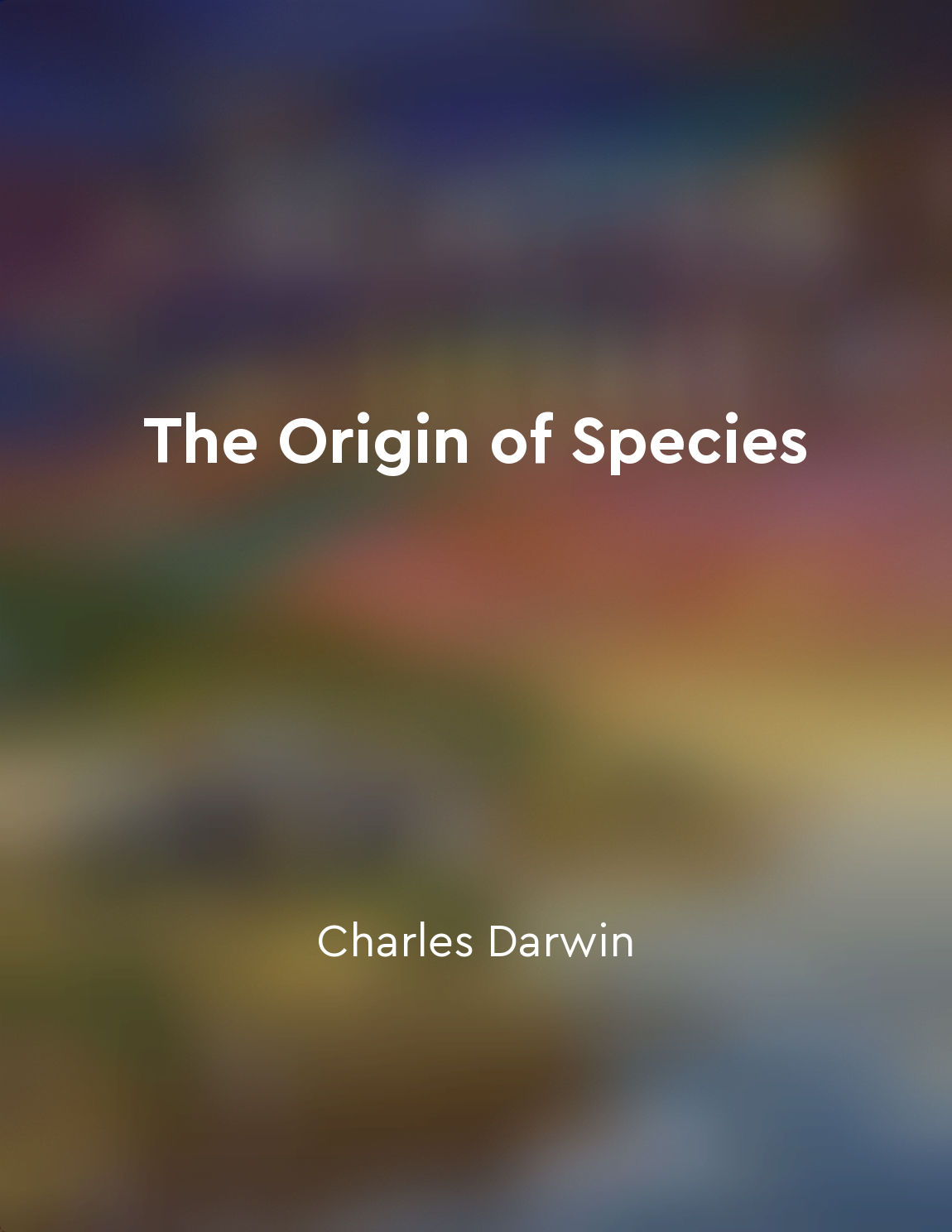Extinction is a natural part of the evolutionary process from "summary" of The Biology Book by DK
Extinction is a natural part of the evolutionary process. Life on Earth has evolved over millions of years, with countless species coming and going. Some species thrive and adapt to their environment, while others face extinction due to changes in climate, competition for resources, or other factors. Extinction is a normal part of the cycle of life, as new species emerge and old ones disappear. The process of extinction can be caused by a variety of factors. Natural disasters such as volcanic eruptions, earthquakes, or asteroid impacts can wipe out entire populations of organisms. Changes in climate, such as ice ages or periods of warming, can also lead to the extinction of species that are unable to adapt. Competition for resources is another common cause of extinction. When two species compete for the same food source or habitat, one may outcompete the other, leading to its extinction. Human activities, such as deforestation, pollution, and overhunting, can also drive species to extinction. While extinction can be a tragic loss, it is also a natural part of the process of evolution. Through extinction, new opportunities are created for other species to evolve and thrive. Extinction can also drive the evolution of new traits in existing species, as they adapt to changing environments and competition. In the grand scheme of life on Earth, extinction is a constant force that shapes the diversity of species. It is a reminder that life is ever-changing and that no species is immune to the forces of evolution. Extinction is not a failure of a species, but rather a necessary part of the cycle of life. It is through extinction that new species emerge and the diversity of life on Earth continues to evolve.Similar Posts
Trade fosters mutual understanding and cooperation
Trade is far more than the simple exchange of goods and services. It is a powerful force that brings people together, fostering...

Cognitive revolution changes human behavior
The Cognitive Revolution was a turning point in human history. It changed the way our brains worked, allowing us to think in mo...
Policies should support human migration for cultural exchange
Policies that facilitate human migration can promote cultural exchange, enriching societies with new ideas, perspectives, and t...
Cooperation among individuals enhances survival
The idea that cooperation among individuals enhances survival is a fundamental principle in the study of evolution. This concep...
Earth's oceans play a crucial role in regulating the climate
The oceans are like the Earth's thermostat, constantly adjusting the planet's temperature to keep it within a habitable range. ...

Earth is our home
The Earth is not just a place where we live; it is our home. It provides us with everything we need to survive - clean air to b...
Hormones regulate various physiological processes
Hormones are chemical messengers produced by endocrine glands in our body. These hormones play a crucial role in regulating var...
Science relies on evidence and reason
Science is a peculiar enterprise. It is not like religion or politics, where one can make grand proclamations based on faith or...

The sixth extinction is a wakeup call for humanity to change its ways
The sixth extinction event, which is currently underway, serves as a stark reminder of the impact that human activities are hav...

Variation is key to diversity
The fact that variations are indispensable for the production of new forms and for representing distinct species is evident. Va...
